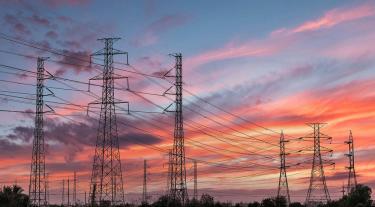Jan Matthiesen, the Carbon Trust’s Director for Offshore Wind said:
“In 1991, Vindeby Wind Farm became the world's first offshore wind farm. Located off the coast of Denmark, it had enough capacity to generate power for 2,200 homes. Fast forward 30 years, and both the number and size of turbines in a wind farm has increased, with the latest farms capable of powering millions of homes.
“This incredible success story is no coincidence. It is the result of strong government, industry and public desire. However, more is needed to achieve Net Zero and Energy Security. The challenge for offshore wind is scaling up deployment fast. This will require governments, the offshore wind industry and wider energy sector to work together to deliver technical and scientific innovation and coordinated deployment of the infrastructure needed to reach Net Zero and Energy Security.”
Simon Retallack, Carbon Trust Director said:
“The Government has essentially published an energy supply strategy, but if its aims of boosting UK energy independence and tackling rising prices in the short-term are to be realised, it needs to be accompanied by an energy demand strategy. Addressing demand reduction means you don’t need as much supply to meet demand, which is why it should always be the first level of action in any energy strategy. It also stands the best chance of reducing household energy bills within months, when people most need it.
“At the Carbon Trust, we know what it takes. Over the last 20 years we have helped thousands of organisations save billions in energy costs through energy efficiency. It requires information campaigns to raise awareness of the opportunities and savings possible; advice on what solutions will work best; low-cost finance for implementation; and training to create the skills needed for effective delivery. Energy efficiency does not happen on its own. It is the great policy failure of the last decade in part because it doesn’t lend itself to the well-understood business models and profit generation of energy generation. But it does generate a return, create jobs and unlock economic growth – with the right help.
“In the next few weeks, a strategy needs to emerge which incorporates the Government’s existing plans, but that goes further and sets out how its manifesto commitment to spend £9 billion on energy efficiency will be honoured. A plan in which technology should be a large part of the solution, but which also puts people at its heart. People’s motivation to act has never been greater – let’s ensure they have the help they need to do so.”


